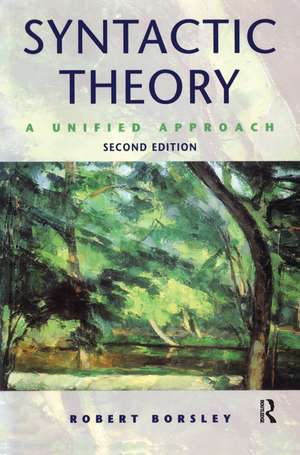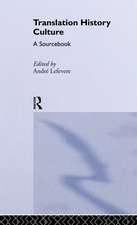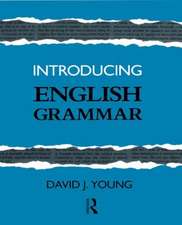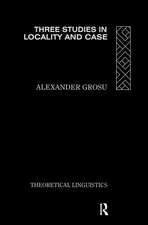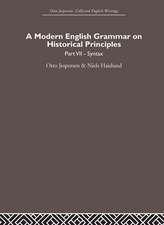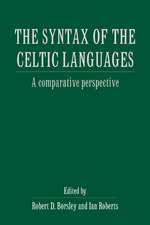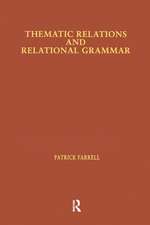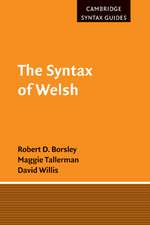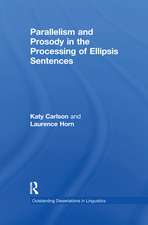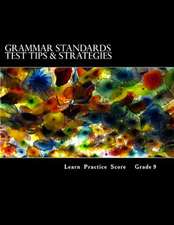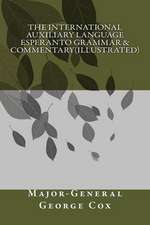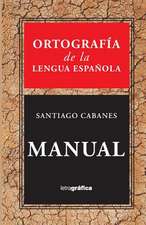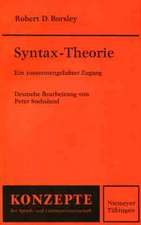Syntactic Theory: A Unified Approach
Autor Robert Borsleyen Limba Engleză Hardback – 5 dec 2016
Thoroughly updated in the light of major recent developments, this second edition includes expanded explanations of the main characteristics of the two theories, summaries of the main features, exercises reinforcing key points and suggestions for further investigation.
| Toate formatele și edițiile | Preț | Express |
|---|---|---|
| Paperback (1) | 239.28 lei 6-8 săpt. | |
| Taylor & Francis – 2 apr 1999 | 239.28 lei 6-8 săpt. | |
| Hardback (1) | 759.80 lei 6-8 săpt. | |
| Taylor & Francis – 5 dec 2016 | 759.80 lei 6-8 săpt. |
Preț: 759.80 lei
Preț vechi: 1154.56 lei
-34% Nou
Puncte Express: 1140
Preț estimativ în valută:
145.41€ • 152.96$ • 121.33£
145.41€ • 152.96$ • 121.33£
Carte tipărită la comandă
Livrare economică 09-23 ianuarie 25
Preluare comenzi: 021 569.72.76
Specificații
ISBN-13: 9781138178458
ISBN-10: 1138178454
Pagini: 288
Dimensiuni: 156 x 234 mm
Greutate: 0.45 kg
Ediția:2
Editura: Taylor & Francis
Colecția Routledge
Locul publicării:Oxford, United Kingdom
ISBN-10: 1138178454
Pagini: 288
Dimensiuni: 156 x 234 mm
Greutate: 0.45 kg
Ediția:2
Editura: Taylor & Francis
Colecția Routledge
Locul publicării:Oxford, United Kingdom
Cuprins
Preliminaries
Constituent structure
Syntactic rules
Syntactic categories
Heads and complements
Subjects and predicates
Anaphora
Noncanonical complements and subjects
Grammatical functions
Passives
Raising sentences
Control
Wh-dependencies
Island constraints.
Constituent structure
Syntactic rules
Syntactic categories
Heads and complements
Subjects and predicates
Anaphora
Noncanonical complements and subjects
Grammatical functions
Passives
Raising sentences
Control
Wh-dependencies
Island constraints.
Notă biografică
Robert Borsley is Professor of Linguistics at the University of Essex, UK.
Recenzii
Borsley has given us a new kind of book: one that combines the best features of other introductory texts on syntax with serious discussion of alternatives to transformational grammar. Maybe we can at last hope for a generation of linguists trained to live in the real world of many theories.
Richard Hudson, Professor of Linguistics, Universi
Richard Hudson, Professor of Linguistics, Universi
